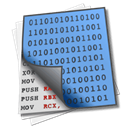Top Ghidra Alternatives for Reverse Engineering
Ghidra, a powerful software reverse engineering (SRE) framework from the NSA, offers an extensive suite of tools for analyzing compiled code across various platforms like Windows, macOS, and Linux. Its capabilities include disassembly, assembly, decompilation, graphing, and scripting, making it invaluable for security researchers and developers. However, while Ghidra is an excellent choice, the world of reverse engineering is vast, and there are many compelling Ghidra alternative tools available that might better suit specific workflows, platforms, or budget constraints.
The Best Ghidra Alternatives
Whether you're looking for commercial-grade power, open-source flexibility, or specialized debugging capabilities, there's a Ghidra alternative out there for you. Here's a curated list of the top contenders:

IDA
IDA Pro Disassembler and debugger is a multi-processor disassembler and debugger hosted on Windows, Linux, and Mac OS X. It's a commercial powerhouse, offering advanced debugging, disassembly, and static analysis features, making it a robust Ghidra alternative for professional reverse engineers.

x64dbg
x64dbg is a 64-bit assembler-level debugger for Windows (with x32dbg for 32-bit). As a free and open-source Ghidra alternative, it provides an intuitive and familiar interface with strong support for 64-bit applications, debugging, and static analysis.

OllyDbg
OllyDbg is a free 32-bit assembler-level analyzing debugger specifically designed for Windows. Its emphasis on binary code analysis makes it an excellent Ghidra alternative when source code is unavailable, focusing purely on debugging capabilities.

radare2
Radare2 is a versatile, free, and open-source reverse engineering framework that supports a wide array of platforms including Mac, Windows, Linux, Android, and more. It offers robust debugging, disassembly, and a unique visual mode, making it a highly adaptable Ghidra alternative for various environments.

GNU Project Debugger
The GNU Project Debugger (GDB) is a free and open-source, command-line, source-level debugger compatible with Mac, Windows, Linux, and BSD. It's an excellent Ghidra alternative for those who prefer a console-based workflow for C, C++, Java, and assembly, featuring breakpoints, disassembly, and remote debugging.

radare
Radare, the predecessor to radare2, is another highly featured free and open-source reverse engineering framework for Mac, Windows, and Linux. While radare2 is generally recommended, radare itself offers strong debugging, disassembly, and malware analysis capabilities as a viable Ghidra alternative.

Binary Ninja
Binary Ninja is a commercial reverse engineering platform with a powerful GUI, available on Mac, Windows, and Linux. It stands out as a strong Ghidra alternative for its hex editor and comprehensive static analysis features, providing a user-friendly experience for complex tasks.

Hopper
Hopper is a commercial reverse engineering tool for OS X and Linux, specializing in disassembling and decompiling 32/64-bit Intel Mac, Linux, Windows, and iOS executables. Its strong disassembler and static analysis capabilities make it a formidable Ghidra alternative, particularly for Apple and Linux environments.

Cutter
Cutter aims to be an advanced free and open-source reverse-engineering platform, prioritizing user experience, and is available on Mac, Windows, and Linux. Developed by reverse engineers, it's a promising Ghidra alternative for those seeking a community-driven, user-friendly open-source solution.

Immunity Debugger
Immunity Debugger is a powerful new way to write exploits, analyze malware, and reverse engineer binary files, primarily for Windows. As a free Ghidra alternative, it excels in its debugging capabilities, built on a solid user interface designed for exploit development and malware analysis.
The right Ghidra alternative for you will depend on your specific reverse engineering needs, target platforms, budget, and preferred workflow. Whether you prioritize open-source flexibility, commercial support, or specialized features like exploit development, this list provides a strong starting point for exploring the diverse landscape of reverse engineering tools.